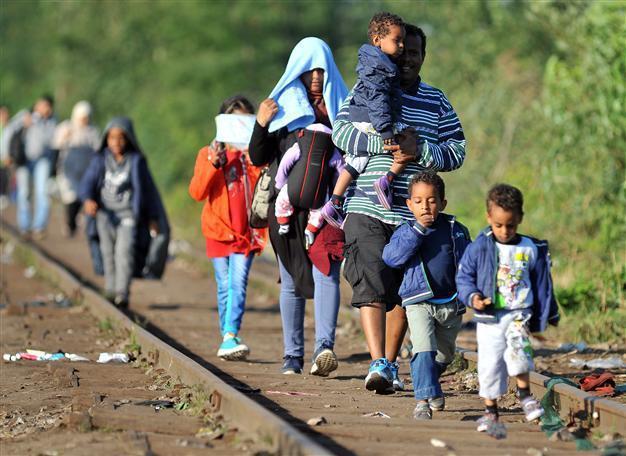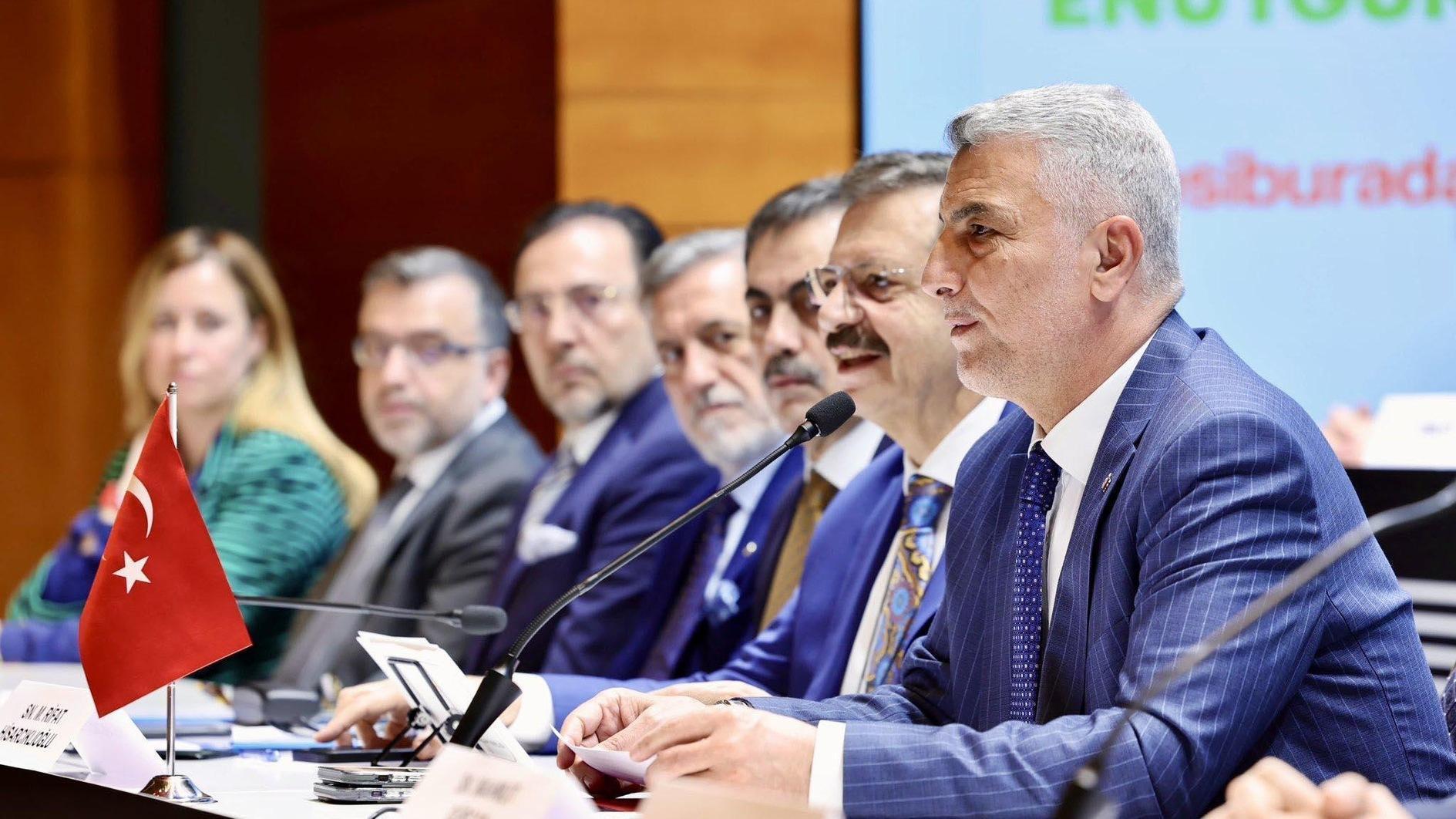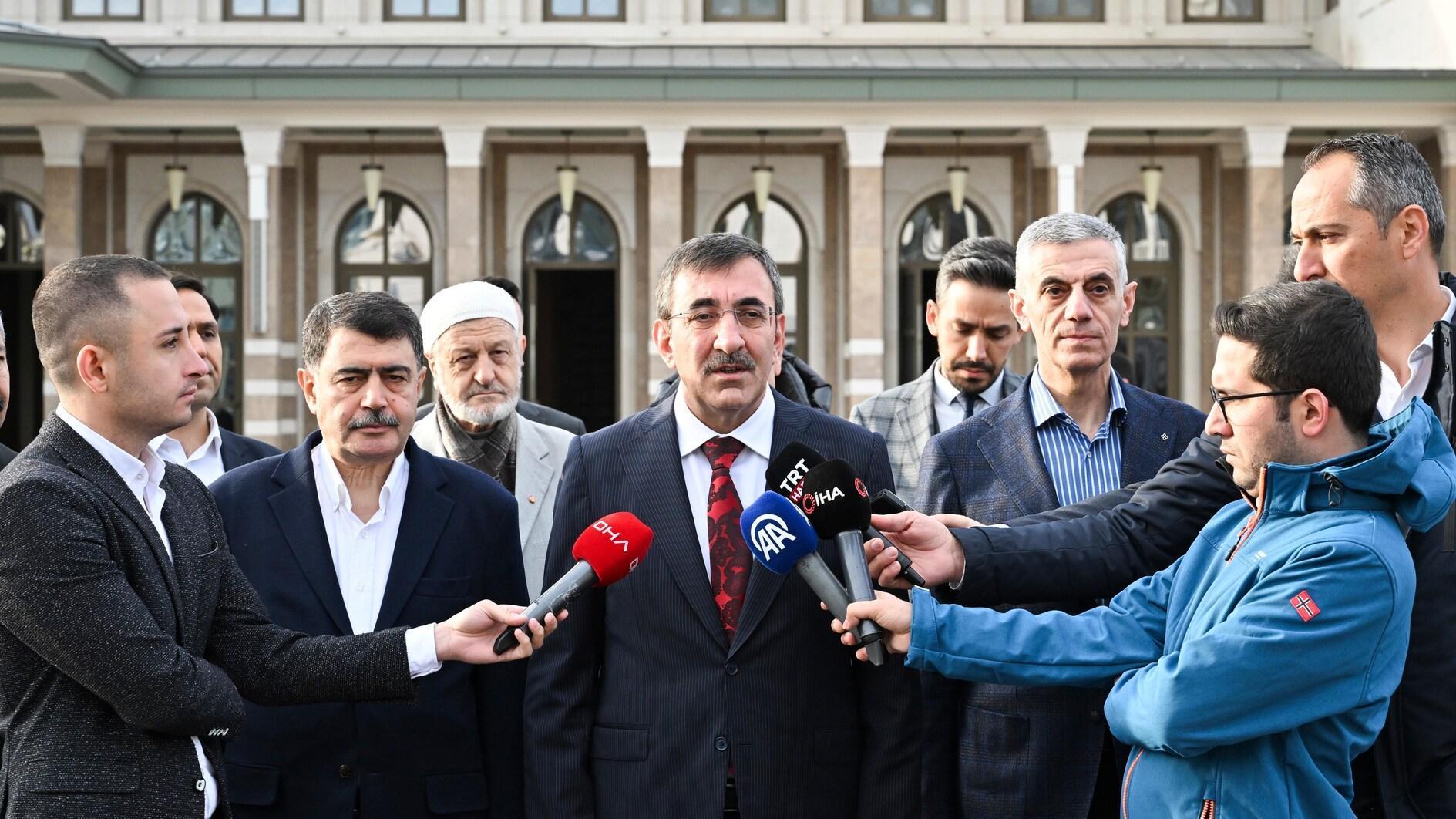Refugees seek new routes as Hungary seals border
Reuters

Refugees from Middle Eastern countries walk on railway tracks to the Hungarian border near the Northern Serbia's town of Horgos on September 14, 2015 before Hungary seals its border on September 15. AFP Photo
As Hungary threw up the barriers to stop thousands of refugees trekking over its border from Serbia and into the European Union, undeterred migrants on the roads simply began to think of other routes to take.The Hungarian decision might relieve pressure on itself, but also meant that new countries on the migrants' maps would be drawn into the crisis.
"Maybe we'll try Croatia, then Slovenia and from there to Vienna and Germany," said Emad, a refugee from the Syrian capital Damascus as he entered Macedonia from Greece. "I don't know if it's a good plan, but we have to try."
Word of the Hungarian border closure spread quickly amongst the columns of refugees, many of whom carried mobile phones and could access social media.
Under new rules that took effect from midnight, Hungary said anyone seeking asylum at its border with Serbia, the EU's external frontier, would automatically be turned back. Anyone trying to sneak through would face jail.
Serbia, where thousands of refugees are currently backed up trying to enter Hungary, is not in the EU. But Serbia borders Romania and Croatia, which are members. Croatia also borders Slovenia, which leads to Italy and Austria.
Buses that would normally carry migrants from Serbia's southern border with Macedonia north to Hungary have been rerouted towards Croatia, Serbia's Radio B92 and Blic newspaper reported.
The United Nations refugee agency UNHCR said in Geneva that it was in touch with different countries on contingencies. Spokeswoman Melissa Fleming declined to name any countries or suggest any possible route, but added: "It's going to be just as much a struggle as it has been for Macedonia and Greece."
At least 200,000 migrants seeking refuge from war and poverty in the Middle East, Asia and Africa have crossed into Hungary so far this year, streaming north through the Balkan peninsula after arriving on Greek shores by boat from Turkey.
The UNHCR expected the numbers arriving at Hungary's border to go down but the overall flow to continue until around November when the weather worsens.
Croatia contingency
Croatia was already making contingency plans for a switch in routes. A senior police official, Zlatko Sokolar, said Croatia had 6,000 police monitoring the state borders and had the capacity for 3,000 refugees.
It plans to register all migrants who come to Croatia, as well as providing initial help, but it expects most to see Croatia as a transit country on their way north, Sokolar said.
Austria was struggling to cope with thousands of migrants in recent days who had rushed through Hungary before the deadline for its closure of the border with Serbia. The route has been the main one used by tens of thousands heading over land for the EU, most bound for Germany or Sweden.
The rush into Austria eased on Sept.15, giving authorities more time to arrange the transfer of people already there to Germany.
"Today will be a decisive day for us," Austria's director general for public security, Konrad Kogler, told ORF radio. "We expect that if (Hungary's) measures are very effective we will have to deal with different, new routes."
Hungary has already built a fence along most of its border with Serbia, and is now considering extending this along its frontier with Romania.
Romania, an EU member that borders Serbia and might figure in any new refugee plans, criticised the plan.
"The Foreign Ministry considers that erecting a fence between two European Union member states that are strategic partners to be not a correct gesture ... and not in line with the European spirit," it said.
Turkey stopped hundreds of people, mainly Syrians, from travelling towards its land border with Greece, a possible new front in the migrant crisis.
Gendarmes threw up barricades near the border city of Edirne, around 17 km (10 miles) by road from the Greek border, as hundreds of people there thronged the main highway. Others took to surrounding hills in a bid to reach the frontier.
Bus services from Istanbul to Edirne were suspended as authorities tried to stem the flow of people.
Turkey is sheltering two million people but difficult conditions and a lack of work have seen a growing tide of migrants trying to smuggle themselves into EU-member Greece.
Many desperate travellers are continuing to attempt the crossing to Greek islands, some lying as little as 4 km (2 miles) from the Turkish coast. On Tuesday, at least 22 people drowned when their boat capsized.
















